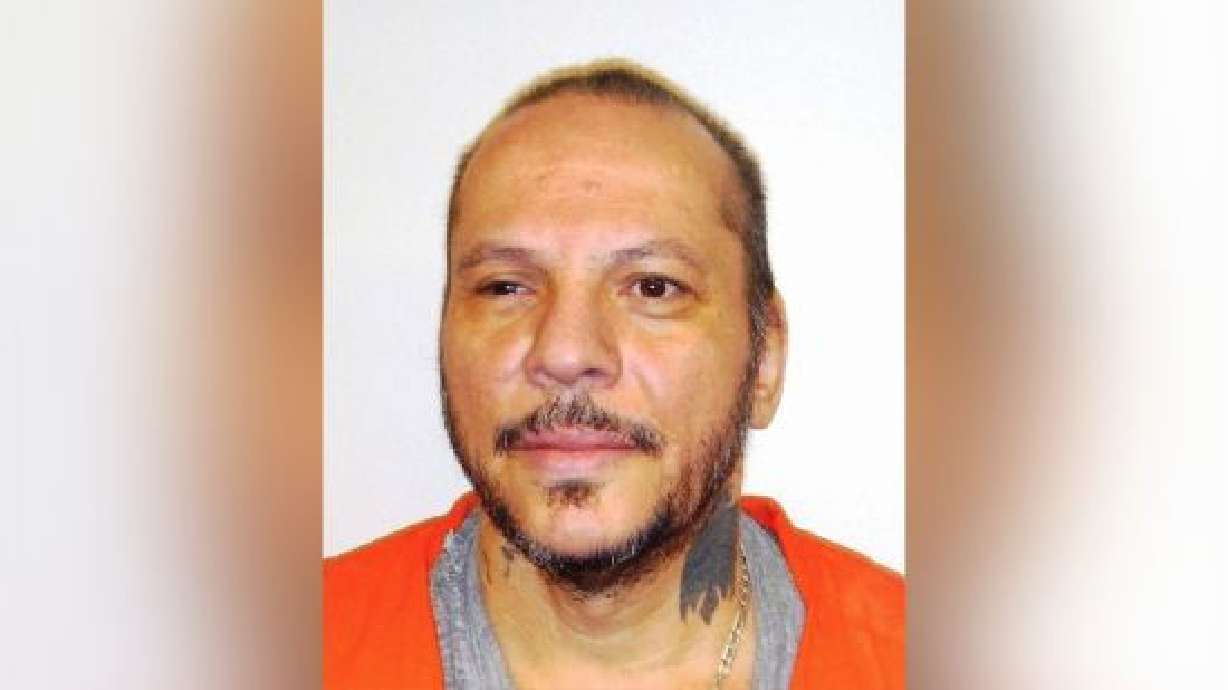Estimated read time: 4-5 minutes
This archived news story is available only for your personal, non-commercial use. Information in the story may be outdated or superseded by additional information. Reading or replaying the story in its archived form does not constitute a republication of the story.
SALT LAKE CITY — Attorneys for a man who has been on Utah's death row for more than three decades are seeking to have the Utah Attorney General's Office disqualified from the appeal due to an alleged conflict of interest.
Michael Anthony Archuleta, 59, and Lance Conway Wood were convicted in separate trials in 1989 of the murder of Southern Utah University student Gordon Church in 1988. Wood was ordered to serve life in prison but Archuleta was sentenced to death.
Since his conviction, the case has resulted in numerous appeals both to the state and federal level. Archuleta's attorneys have claimed that he has a history of intellectual disability.
In October, Archuleta's defense team filed a motion in Millard County's 4th District Court seeking to determine whether the attorney general's office has a conflict of interest in the case. The motion was originally sealed — a move that was challenged by a group of media representatives including KSL.com, the Deseret News, the Salt Lake Tribune and the Millard County Chronicle Progress.
On Friday, Archuleta's attorneys withdrew their request to have their conflict of interest motion sealed, stating that the Utah Department of Corrections "has now changed its position or, at the very least, indicated a misunderstanding of the scope of its prior stipulation sealing the relevant records. For that reason, Mr. Archuleta has no personal interest in keeping these records protected."
Archuleta's attorneys note that the attorney general's office represents "three agencies responsible for different roles in this litigation and, despite acknowledging its conflict, failed to implement a timely screening between conflicted attorneys," according to the motion to determine conflict of interest.
The motion says the attorney general's office:
- Represents the Department of Human Services, which is assigned to conduct independent mental evaluations of Archuleta to determine intellectual level.
- Represents the Department of Corrections, which has custody of Archuleta as well as custody of "sensitive documents" related to him and would be assigned to execute him.
- Represents the state with its own lawyers fighting Archuleta's appeal of his death sentence.
These deputy attorneys general representing different departments all report to the same person, Attorney General Sean Reyes, and that creates significant conflicts of interest, the motion claims.
Defense attorneys claim the attorney general's office interfered with the Department of Human Services' ability to properly conduct a nationwide search for experts to evaluate Archuleta. Department officials had asked for more time to find evaluators, noting that COVID-19 was reducing the pool of qualified people willing to conduct an evaluation. The attorney general's office, however, did not want another delay and encouraged the Department of Human Services to use its own experts while allegedly stating, "Every day that passes is a day that Mr. Archuleta's sentence is thwarted," according to the motion.
Human Services officials ultimately "abandoned its out-of-state search" and appointed two in-state experts, the motion states, and only imposed a screening measure among the attorneys general after their experts were appointed.
Archuleta's attorneys also contend that the attorney general representing the state "communicated extensively" with the attorney general representing the Utah Department of Corrections to facilitate a meeting with one of the state's experts and the warden of the prison about Archuleta's "functioning and abilities." The state's attorney general also asked the corrections attorney general for "sensitive documents," including prison visitor logs and names of Archuleta's contacts, even though the corrections attorney general classified those records as private, the motion states.
"Because both UDC and the state are represented by colleagues in the same agency, UDC was unable to make an independent decision whether to exercise its discretion to release Mr. Archuleta's private records to the state," the motion claims.
Archuleta's attorneys say the conflict is further illustrated by the state attorney general promising the corrections attorney general that the state wouldn't share the private documents with anyone other than their investigative and litigation team and would not use the documents in court. "This would presumably mean the state's AG would withhold these records from Mr. Archuleta's counsel and retained experts, despite this court's order that custodians of governmental agency records must provide private and controlled records upon request."
"To Mr. Archuleta's counsel's knowledge, there has been no screening mechanism created between" the attorney general representing the state, the attorney general representing the Department of Human Services and the attorney general representing the Department of Corrections, the motion alleges.
"The decisive issue here ... is: whether the AG's screening is sufficient to avoid disqualification. It is not," Archuleta's attorneys wrote.
The attorneys conclude their filing by stating "this motion is not made for the purpose of harassment: it is based on established rules and case law and is made to protect Mr. Archuleta's constitutional due process rights. Facing the most severe penalty, it is imperative to protect his rights and due process in the determination of his death eligibility."
On Tuesday, the attorney general's office filed a motion requesting additional time to respond to Archuleta's motion for disqualification.
"Because of scheduling conflicts and other ongoing caseload demands — including the preparation and filing of a United States Supreme Court amicus brief and a four-day evidentiary hearing in another capital case — no counsel for the state is or has been available to prepare the state's response to the motion," the attorney general's office wrote in its motion.
The state is requesting a deadline of Dec. 29 to file its response.










